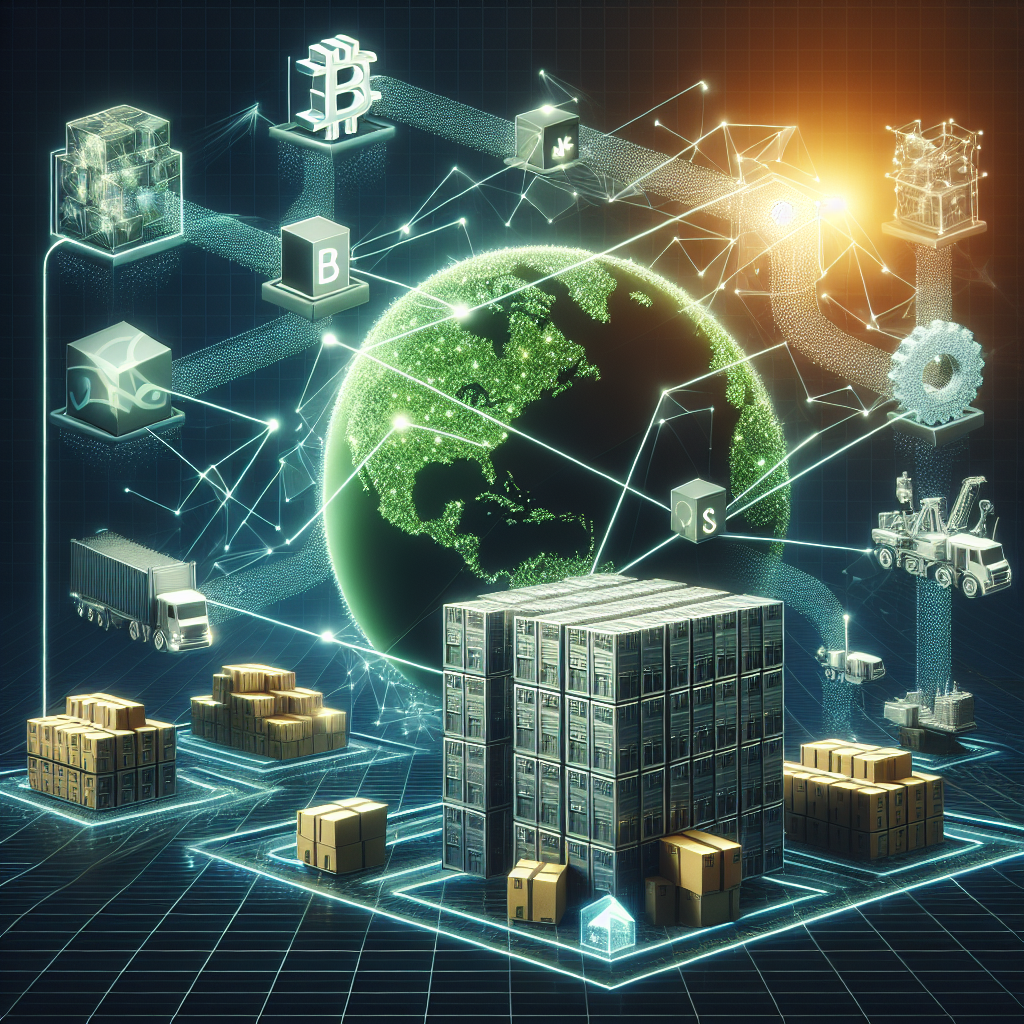The Impact of Blockchain on Sustainable Supply Chains
In the modern business landscape, the importance of sustainability has become undeniably crucial. As consumers grow more conscious of the environmental and ethical implications of their purchases, companies are pushed to reevaluate their supply chain practices. This shift towards sustainability has been significantly bolstered by the advent of blockchain technology. Blockchain, the underlying technology behind cryptocurrencies like Bitcoin, offers a transparent, secure, and efficient way to record transactions. Its impact on sustainable supply chains is profound, offering a new paradigm for how goods are sourced, produced, and delivered.
Understanding Sustainable Supply Chains
Sustainable supply chains are those that incorporate environmental and social considerations into their operations. This involves minimizing environmental degradation, ensuring fair labor practices, and reducing waste along the entire supply chain. The goal is not only to meet current needs without compromising future generations but also to create a positive impact on the communities and ecosystems involved.
The Role of Blockchain in Enhancing Sustainability
Blockchain technology offers unique advantages that can significantly enhance the sustainability of supply chains. These include:
Transparency and Traceability
Blockchain provides an immutable record of transactions, which means every product’s journey can be tracked from its origin to the consumer. This level of transparency ensures that claims about ethical sourcing or environmental stewardship can be verified. Consumers can check the authenticity of organic or fair-trade labels, for example, fostering trust and accountability.
Efficiency and Reduction in Waste
By automating and digitizing supply chain processes through smart contracts, blockchain can reduce the paperwork, errors, and inefficiencies often seen in traditional supply chains. This leads to a more streamlined process, reducing waste and energy consumption. Moreover, the accurate tracking of products can minimize losses and improve inventory management, contributing to more sustainable practices.
Enhanced Security
The decentralized nature of blockchain makes it highly secure against tampering and fraud. This security is crucial for protecting sensitive information and ensuring that sustainability certifications are genuine. It also prevents the counterfeiting of products, which is a significant issue in industries like pharmaceuticals and luxury goods.
Empowerment of Small Producers
Blockchain technology can democratize supply chains by giving small producers direct access to the market. By bypassing traditional middlemen, small farmers and artisans can receive a fairer share of the profits. This economic empowerment can lead to more sustainable practices, as these producers often rely on sustainable methods for their livelihoods.
Challenges and Considerations
Despite its potential, the integration of blockchain into sustainable supply chains is not without challenges. These include the high costs of technology adoption, the need for digital literacy, and concerns about the energy consumption of blockchain networks. Additionally, achieving widespread collaboration among all stakeholders in a supply chain is crucial for the technology’s success. Overcoming these obstacles requires concerted efforts from businesses, governments, and NGOs.
The Future of Sustainable Supply Chains with Blockchain
As technology evolves and awareness grows, the integration of blockchain into sustainable supply chains is expected to accelerate. Innovations in blockchain technology, such as the development of more energy-efficient consensus mechanisms, will address current limitations. Moreover, as more companies commit to sustainability goals, the demand for transparent and efficient supply chains will continue to rise.
FAQs
What is blockchain technology?
Blockchain technology is a decentralized digital ledger that records transactions across many computers in a way that prevents alteration, ensuring transparency, security, and integrity.
How does blockchain improve supply chain sustainability?
Blockchain improves supply chain sustainability by enhancing transparency and traceability, reducing waste, increasing efficiency, ensuring security, and empowering small producers.
What are the challenges in implementing blockchain in supply chains?
Challenges include the costs of technology adoption, the need for digital literacy among stakeholders, energy consumption of blockchain networks, and the necessity for collaboration across the supply chain.
Can blockchain technology help in reducing carbon footprint?
Yes, blockchain can help reduce carbon footprint by optimizing supply chain processes, reducing waste, and enabling the verification of sustainable practices, such as carbon offsetting or the use of renewable energy sources in production.
Is blockchain technology being widely used in supply chains currently?
While blockchain technology is gaining traction in various industries, its widespread adoption in supply chains is still in the early stages. However, numerous pilot projects and initiatives by leading companies indicate a growing interest and investment in this technology for enhancing sustainability.
In conclusion, blockchain technology harbors the potential to revolutionize sustainable supply chains. Its capacity for ensuring transparency, enhancing efficiency, and empowering small producers aligns closely with the goals of sustainability. While challenges remain, the ongoing advancements in technology and growing commitment of stakeholders towards sustainability suggest a promising future. As we move forward, it is essential for all actors within the supply chain to collaborate and innovate, leveraging blockchain technology as a powerful tool to build a more sustainable, equitable, and transparent global economy.

